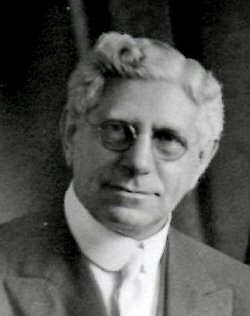In a presentation available on YouTube, the well-known and capable Arminian philosopher, Jerry Walls, presents what he calls a "Calvinist Conundrum".
His whole presentation is available here and the relevant section for our purposes starts at 19:55 and runs through to 23:29.
Walls presents the conundrum with the following premises and conclusion:
1. God truly loves all persons
2. Truly to love someone is to desire their well being and to promote their true flourishing as much as you can.
3. The well being and true flourishing of all persons is to be found in a right relationship with God, a saving relationship in which we love and obey him.
4. God could determine all persons freely to accept a right relationship with himself and be saved.
Therefore, 5. All persons will be saved.
As Walls points out, few evangelicals will accept the fifth premise, as not all persons will be saved. Therefore, he says, one of the four premises must be wrong.
As an Arminian, his choice is simple. He rejects premise 4. For the Arminian, God cannot determine someone to freely accept a relationship with himself.
Yet premise 4, is a key Calvinist belief (known as irresistible grace in a world where divine determinism is compatible with human free will).
So, says Walls, the Calvinist must reject one of premises 1-3.
In my view, Jerry Walls's conundrum fails because his conclusion 5 does not logically follow from the first four premises.
There is logical leap that he makes here, which is unwarranted.
Let's look at the first three premises again and then suggest a logical conclusion based on those premises first, before we come to Walls's fourth premise.
1. God truly loves all persons
2. Truly to love someone is to desire their well being and to promote their true flourishing as much as you can.
3. The well being and true flourishing of all persons is to be found in a right relationship with God, a saving relationship in which we love and obey him.
Therefore, 4A. God truly has a desire to save everyone.
Many Calvinists would agree with 4A. Those who don't would likely question either 1 or 2 (i.e. either God does not love everyone or that God can truly love someone but not desire their wellbeing in a saving sense).
Now, if we take our new first conclusion along with Wall's fourth premise (we will call this 4B) we have this:
4A. God truly has a desire to save everyone.
4B. God could determine all persons freely to accept a right relationship with himself and be saved.
I believe it is clear that Walls's conclusion does not follow logically from 4A and 4B:
Therefore, 5. All persons will be saved.
For Wall's conclusion to be valid, it rests on a hidden premise. The necessary hidden premise would be this:
4C. God must fulfil any desire he has if he is capable of doing so.
Only if 4C is true would Walls's conclusion 5 be valid. However, it is precisely this hidden assumption that Calvinists reject. For it is that this point precisely that God's sovereignty comes into the equation. God has the right to choose which of his desires he acts on, or rather decides to to act on in his decree, and which he determines will remain mere velleities (wishes or inclinations not acted upon).
Most Calvinists accept that God has desires for some things, considered in themselves, that he nevertheless chooses not to fulfil in his decree because of other conflicting desires or when considering something in light of everything else or in a connected way with everything else. In this context, God can desire the salvation of all when considered simpliciter yet desire the salvation of some and the condemnation of some when considered complexiter and in the light of God's desire to display his own glory and attributes above all else.
For these reasons, the existence of premises 4A and the hidden assumption in 4C, Walls's conundrum fails to present any significant problem for the Calvinist theologian. Rather than being a concundrum, it is a Calvinist explanation of the wisdom, knowledge and sovereignty of God.

